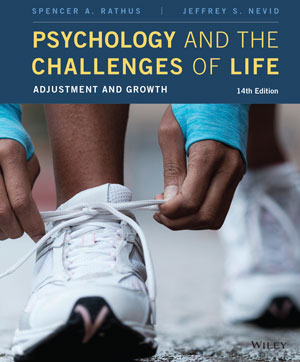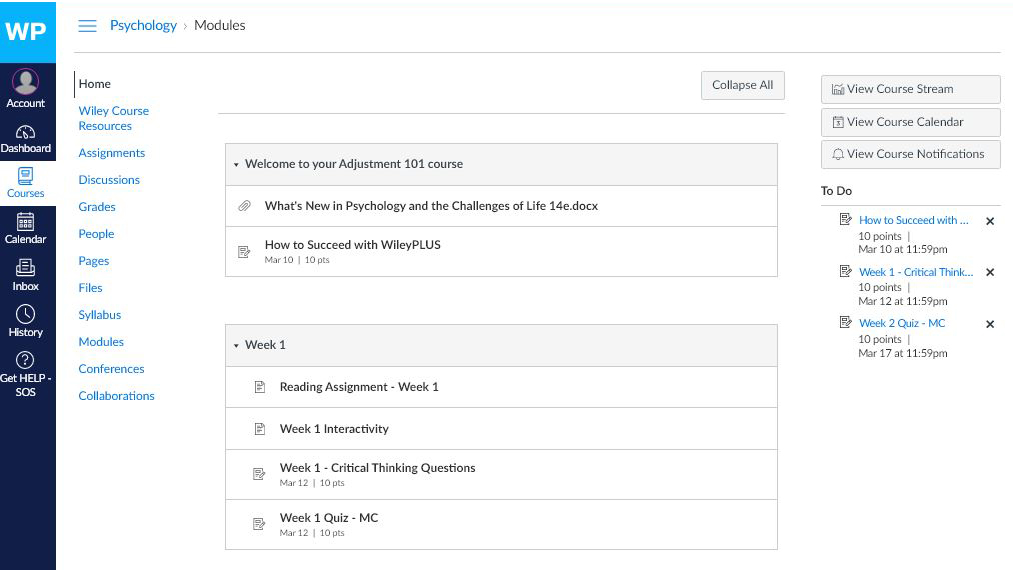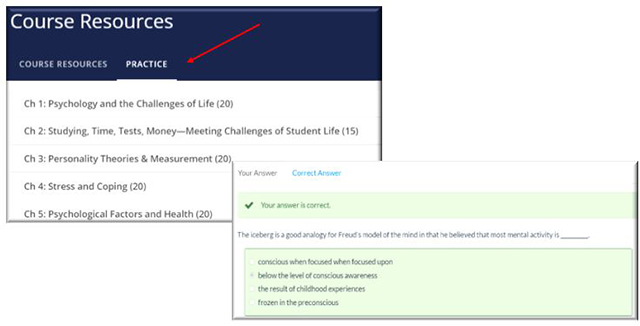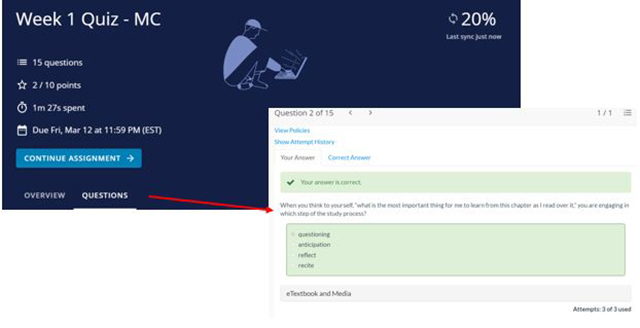
Psychology and the Challenges of Life: Adjustment and Growth 14e
By Spencer A. Rathus and Jeffrey S. Nevid
Psychology and the Challenges of Life: Adjustment and Growth 14e offers students a variety of tools and meaningful activities in a structured learning environment designed to empower them to be successful in the course. In the new 14th edition of this market leading title, authors Spencer Rathus and Jeffrey Nevid continue to reflect on the many ways in which psychology relates to the lives we live and the important roles that psychology can play in helping us adjust to the many challenges we face in our daily lives. Throughout the text, the authors explore applications of psychological concepts and principles in meeting life challenges such as managing time, developing self-identity, building and maintaining relationships, coping with stress, dealing with emotional problems and psychological disorders. The new edition has been thoroughly updated to meet the needs and concerns of a new generation of students, providing additional information on psychology in the digital age, social media, the current Opioid crisis, as well as offering greater coverage of matters concerning sexuality and gender.
Psychology and the Challenges of Life 14e is now available on the new WileyPLUS platform providing instructors with freedom and flexibility to customize their course and offering students a clear and engaging path through the material.
Schedule a Demo Request Instructor AccountWant to learn more about WileyPLUS? Click Here

An easier way to teach and learn
The new WileyPLUS provides instructors with the freedom and flexibility to tailor curated content and easily manage their courses. It presents students with a clear learning path designed to engage and motivate them so that they succeed in the course.
Self-Assessments Stimulate Interest
Self-scoring questionnaires stimulate students’ interest and provide self-insight by helping them satisfy their curiosity about themselves. These self-scoring interactive questionnaires also enhance the relevance of the text to students’ lives.
New interactive graphics engage all types of students
Interactive graphics engage students with illustrations and diagrams that help them actively explore and better understand complex concepts.

Self-Scoring Practice
Self-scoring practice exercises help students see what they’ve mastered and what they still need to master before completing higher-stakes online homework or assessment assignments.

Pre-created Homework Assignments
These pre-created assignments allow instructors to quickly assign a short set of multiple-choice questions that test students’ ability to apply the material they have just learned.
- IDEA Model: The IDEA model is built on the foundation of Bloom’s taxonomy and is organized to represent three general levels of educational objectives: (1) the lowest levels in Bloom’s taxonomy, comprising basic concept acquisition and knowledge (Identify and Define/Describe); (2) the middle level in Bloom’s taxonomy, comprising applications of new knowledge (Apply); and (3) the highest levels in Bloom’s taxonomy, consisting of analyzing, evaluating, and synthesizing new knowledge (Evaluate/Explain).
- Real world application: Emphasizing the importance of applying psychological knowledge to the problems and challenges we face in daily life, we end each chapter with the Applying Psychology in Daily Life feature. Using the MyLife, MyPsych icon to emphasize the relevance of this material to our personal lives.
- Modular approach to the content: To help students handle their many responsibilities, the text is organized in a modular format that breaks down lengthy chapters into smaller, individualized study units. The modular approach helps students organize their study time by presenting information in more manageable units of instruction.
- An Adjustment in the Digital Age feature will be added to all chapters. Some of the topics covered include: Smartphones and Social Media as Research Tools, Are You a Facebook Extravert or a Twitter Narcissist?, Cyberbullying, and Virtual Therapy.
Features Include:
Dr. Spencer A. Rathus, Ph.D. earned his Ph.D. in psychology and then entered clinical practice and teaching. He has published research articles in journals such as Behavior Therapy, Journal of Clinical Psychology, Behaviour Research and Therapy, Journal of Behavior Therapy and Experimental Psychiatry, Adolescence, and Criminology. His research interests lie in the areas of human growth and development, psychological disorders, methods of therapy, and psychological assessment. He has since poured his energies into writing textbooks in introductory psychology, developmental psychology, the psychology of adjustment, human sexuality, and abnormal psychology. He has taught at Northeastern University, St. John’s University, New York University, and The College of New Jersey. His professional activities include service on the American Psychological Association Task Force on Diversity Issues at the Precollege and Undergraduate Levels of Education in Psychology, and on the Advisory Panel, American Psychological Association, Board of Educational Affairs (BEA) Task Force on Undergraduate Psychology Major Competencies.
Dr. Jeffrey S. Nevid, Ph.D. is Professor of Psychology and Director of the Doctoral Program in Clinical Psychology at St. John’s University. He was awarded a Ph.D. in Clinical Psychology from the State University of New York at Albany and was a NIMH Post-Doctoral Fellow in Mental Health Evaluation Research at Northwestern University. Dr. Nevid holds a Diplomate in Clinical Psychology (ABPP) and has served as Associate Editor of Journal of Consulting and Clinical Psychology and as Consulting Editor for the journals Health Psychology and Psychology and Marketing. Dr. Nevid has published more than 50 research articles in leading scientific journals and is the author or coauthor of 11 books, including Psychology and the Challenges of Life: Adjustment and Growth (Wiley). Dr. Nevid teaches graduate courses in research methods, and objective personality assessment, as well as supervising doctoral students in cognitive behavior therapy.
- Psychology and the Challenges of Life
- Personality: What It Is, How It’s Measured
- Stress and Stress Management
- Psychological Factors and Health
- Developing More Healthful Behavior
- The Self in the Social World
- Social Influence: Being Influenced By—and Influencing—Others
- Adolescent and Adult Development: Going through Changes
- Gender Roles, Gender Identity, and Sexual Orientation
- Relationships: Getting from Here to There
- Sexual Behavior
- Psychological Disorders
- Methods of Therapy: Ways of Helping
- Time, Money, Studying, Tests: Meeting the Challenges of Daily Life
- The Challenge of the Workplace

